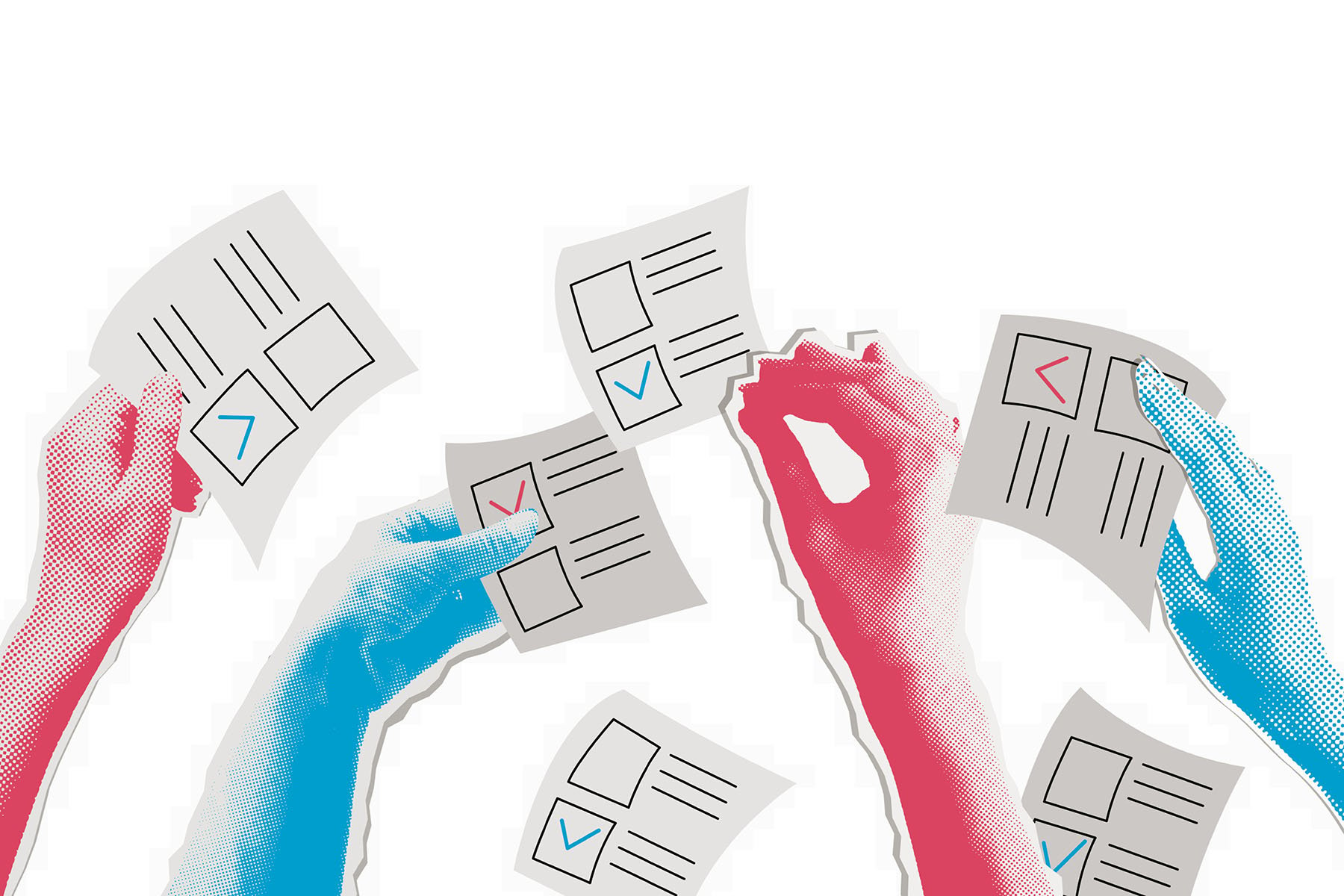We’re going to get you through this election. Sign up for our daily newsletter.
Christine Hallquist made history on November 6, 2018. That day, the 62-year-old became the first out trans person to appear on a ballot for governor.
Across Vermont, trans people lined up to vote for her candidacy. But in Burlington, at least one trans woman was turned away. The woman, who hadn’t updated her photo identification since she started her transition, was told she was using a fake ID.
Vermont officials later apologized, and the woman drove to another polling place to vote. But the incident confirmed some of the worst fears for transgender advocates: that voting while trans can present particular challenges.
An estimated 210,800 transgender Americans could face voter disenfranchisement this election cycle, due to voter ID laws. Many trans people have expressed fears of increased harassment and violence as anti-trans hate speech has fueled campaign rhetoric in recent weeks.
So, how can trans, nonbinary and gender expansive people vote safely and comfortably? The 19th consulted experts and dug into the research about what to expect this election to get some answers to the most pressing questions.
Can I be turned away from voting because I am trans?
No, you cannot. If you are a citizen, do not have a felony conviction or another rare extenuating circumstance, you have a right to vote (more later about making sure you have what you need).
Does my ID have to match my gender presentation?
No. “Gender discrepancies on ID are not a valid reason to deny a regular ballot,” according to Advocates for Transgender Equality (A4TE), the largest trans rights organization in the country, which has a tipsheet dedicated to voter ID laws.
Andrea Jenkins, whose 2017 election to the Minneapolis City Council made her the first out Black trans woman elected to public office in the United States, adds that there are many reasons people might not look like their IDs.
“You might dye your hair green, but it was brunette when you took your picture,” she said.
-
Read Next:
What if I am told I can’t vote?
It’s true that despite your right to vote, discrimination persists. Josie Caballero, A4TE’s director of voting and elections, advises you not to leave on Election Day without casting a provisional ballot.
“If they’re not giving you the ballot, vote provisionally, and then ask for follow-up instructions,” she said.
Should I be concerned about my safety, given all of the anti-trans rhetoric?
Advocates say no. While it’s true that former President Donald Trump and his allies have funneled millions of dollars into ads targeting transgender Americans, recent data shows that most people think the ads are mean and ineffective. Experts think trans people will be able to vote comfortably and safely this election.
In a new survey from progressive think tank Data for Progress, 85 percent of Republicans said candidates should abandon anti-trans messaging.
Caballero added that in 2020, the worst reports came in the form of people shouting rude messages out of their cars, a scary and threatening prospect, but one that did not result in physical injury.
“This is a highly intense election cycle, but outside of people, you know, driving around in trucks and trying to look intimidating … I think you would be fine,” she said.
Is there anything I can do to feel safer?
Yes. Both Caballero and Jenkins suggested that if you’re nervous about going to polls or dropping off a ballot in person, to travel with an ally.
“Try to find a friend or a neighbor to go to the polls with you,” said Jenkins. “In Minneapolis, if there are concerns about your identity, you can bring a neighbor or someone who can vouch for you.”
Are there any resources if I need other help?
Yes, a lot. Most immediately, if you need help with voting access on Election Day, call the National Election Protection Hotline at 1-866-OUR-VOTE. Trans advocates say the hotline is trans-affirming and culturally competent.
If you have questions about IDs in your state, Trans Lifeline has a deeply-researched ID Change Library that covers every state as well as federal IDs. You can match those against voting requirements by state from Vote411.
A4TE has this helpful checklist to get you through Election Day. Finally, the Williams Institute at the UCLA School of Law breaks down here where ID laws will pose the greatest barriers for trans and gender expansive people in 2024, so you can prepare yourself.
OK, but all of this sounds like a lot of work. Do I really have to vote?
The 19th asked experts why it matters if trans people vote, and they had some pretty strong arguments.
Andrea Jenkins: “I think it’s important for us to vote in any election, but particularly in this election, bodily autonomy rights are on the line. And I don’t think those threats necessarily go away in a Harris administration, but I will say that I think it’s easier to organize under an administration that’s willing to listen than it is under an administration that is hell-bent on erasing us from society.”
Josie Caballero: “We know that if the Harris administration gets the Equality Act across her desk, she’s going to sign it. So this is incredibly important, and if we do not win this election and have our voices heard, we could be turning back the clock on trans rights by decades, possibly 60 years.”
What if I am still nervous?
You have support. Jenkins noted that there are more than 500 transgender rights organizations coast-to-coast, ready for whatever the outcome of the election is.
“We are a strong and powerful community,” she said. “We have self-determination on our side. People who have chosen the path to transition and be publicly out in their gender identities are some of the bravest people on the planet. We are living proof that change is possible, and that change is inevitable.”
To check your voter registration status or to get more information about registering to vote, text 19thnews to 26797.







